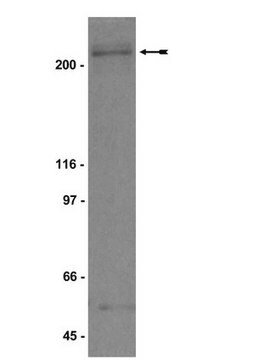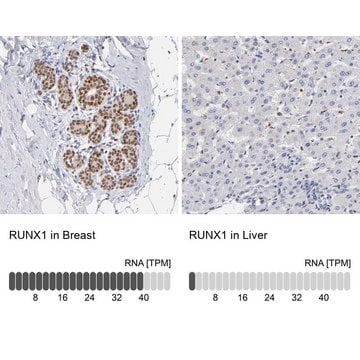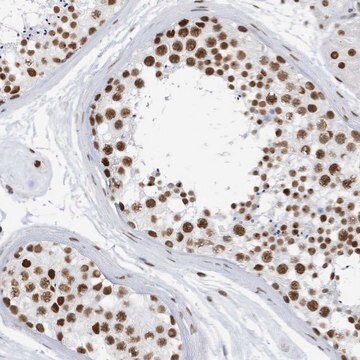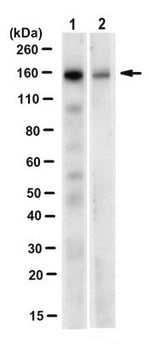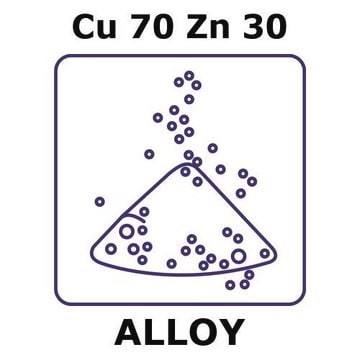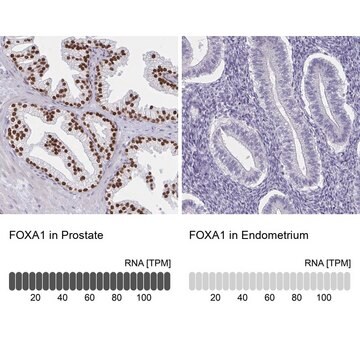05-637
Anti-Bmi-1 Antibody, clone F6
clone F6, Upstate®, from mouse
Synonym(s):
Polycomb group RING finger protein 4, RING finger protein 51
About This Item
Recommended Products
biological source
mouse
Quality Level
antibody form
affinity isolated antibody
antibody product type
primary antibodies
clone
F6, monoclonal
species reactivity
rat, human, mouse, rabbit
packaging
antibody small pack of 25 μg
manufacturer/tradename
Upstate®
technique(s)
immunocytochemistry: suitable
immunoprecipitation (IP): suitable
western blot: suitable
isotype
IgG1
NCBI accession no.
shipped in
ambient
target post-translational modification
unmodified
Gene Information
human ... BMI1(648)
General description
Several lines of evidence implicate Bmi1 in tumorigenesis. Firstly, Bmi1 cooperates with c-Myc in the generation of lymphomas in double transgenic mice. Secondly, Bmi1 blocks senescence and immortalizes mouse embryo fibroblasts, although not human fibroblasts, and in combination with an activated H-ras gene leads to neoplastic transformation. Thirdly, the BMI1 gene is amplified in certain mantle cell lymphomas and is overexpressed in a subset of non-small cell lung cancer, colorectal carcinomas, multiple myelomas and medulloblastomas, but not glioblastomas. Fourthly, the transformation of human hematopoietic progenitor cells by the oncogenic fusion protein E2a-Pbx1 requires Bmi1. Indeed, based on a list of genes differentially expressed in a mouse model of metastatic prostate cancer on a wild-type and bmi1-deficient genetic background a gene signature was recently identified that may predict response to therapy and survival in multiple types of cancer.
Specificity
Immunogen
Application
Epigenetics & Nuclear Function
Chromatin Biology
Quality
Target description
Physical form
Storage and Stability
Analysis Note
U2OS whole cell lysate, K-562 nuclear extract, 0-4 hour embryos or 12-24 hour embryos
Other Notes
Legal Information
Disclaimer
Not finding the right product?
Try our Product Selector Tool.
recommended
Certificates of Analysis (COA)
Search for Certificates of Analysis (COA) by entering the products Lot/Batch Number. Lot and Batch Numbers can be found on a product’s label following the words ‘Lot’ or ‘Batch’.
Already Own This Product?
Find documentation for the products that you have recently purchased in the Document Library.
Our team of scientists has experience in all areas of research including Life Science, Material Science, Chemical Synthesis, Chromatography, Analytical and many others.
Contact Technical Service
